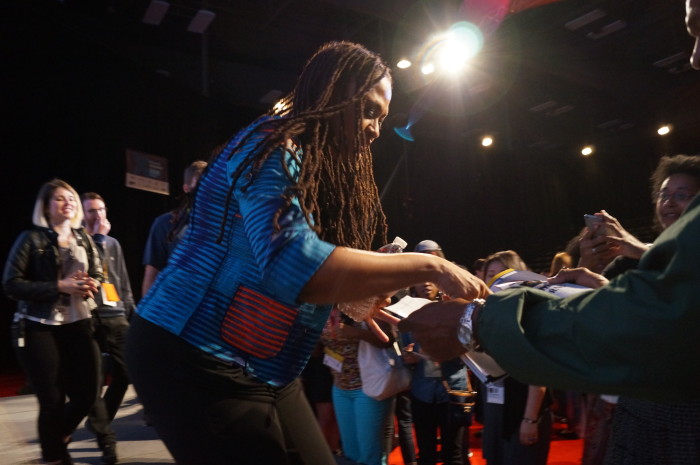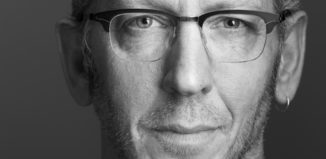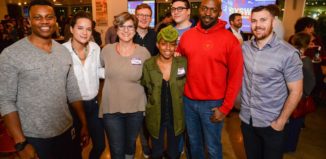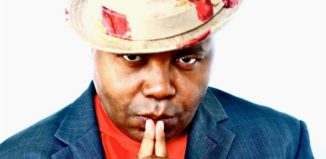This year, South By Southwest went for a long shot and pulled all its strings to reel in Selma director Ava DuVernay as a keynote speaker, the first to kick off the keynote series. It was truly one of the most refreshing, humbling and honest speeches I had heard in awhile. She spoke of dreaming big, attention and intention, and finally what stuck with me most, doing “the work.” Out of all the candid and amazing moments during DuVernay’s keynote address, I couldn’t help but return to that key moment in her speech. While speaking about how the entertainment industry could spotlight more marginalized stories, Duvernay offered up some tough love. Quite bluntly, she demanded we, “stop asking people that don’t care about the work to do the work.” At first listen, the words seem pretty harsh, but the message remains strong, so much so that I couldn’t help but to continuously think about “the work” Duvernay referred to, even after leaving the keynote address.
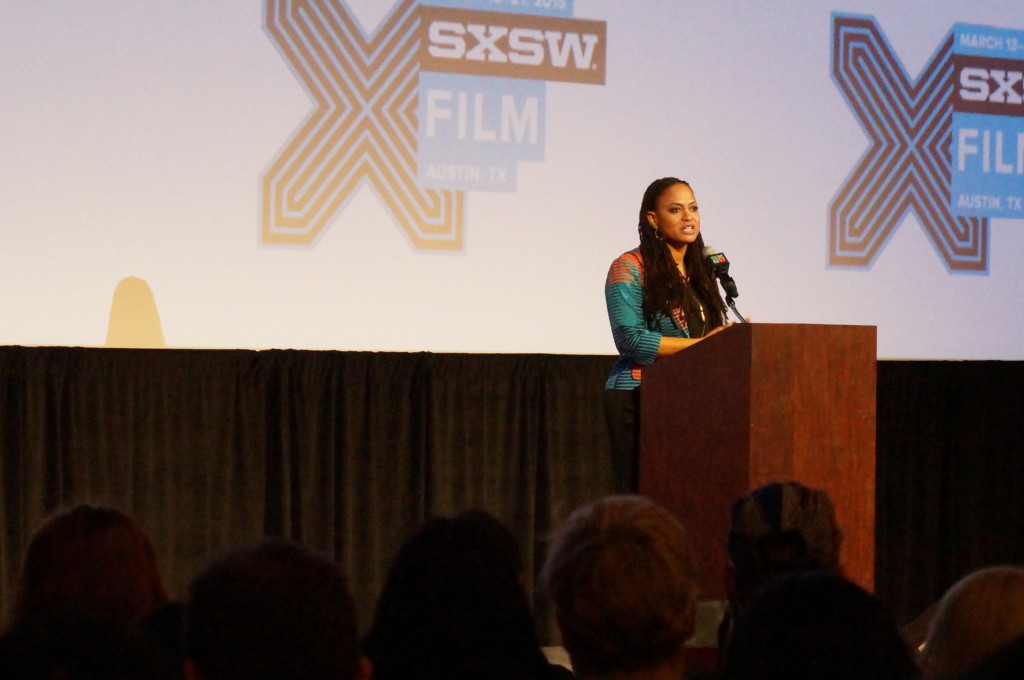 First of all, what is “the work?” In my mind, “the work” is to achieve equality and respect for all, no matter race, religion, gender, sexual orientation, or anything else that makes us different from the people around us. And as Duvernay suggested, it is up to us, the marginalized, the people who care, to continue doing “the work,” no matter what road blocks come up. Walking from the Convention Center after hearing her speak, I couldn’t help but to ask myself: Are we doing the work that we care so much about? Are we telling our stories? Are we on the frontline fighting for change? Have we realized that we have to be the change we wish to see?
First of all, what is “the work?” In my mind, “the work” is to achieve equality and respect for all, no matter race, religion, gender, sexual orientation, or anything else that makes us different from the people around us. And as Duvernay suggested, it is up to us, the marginalized, the people who care, to continue doing “the work,” no matter what road blocks come up. Walking from the Convention Center after hearing her speak, I couldn’t help but to ask myself: Are we doing the work that we care so much about? Are we telling our stories? Are we on the frontline fighting for change? Have we realized that we have to be the change we wish to see?
The answer is yes, especially within the LGBT community. Just take a look at television nowadays. More than ever, we’re seeing LGBT stories play out in our living rooms – and on basic cable! Even better, it seems that more people are joining the fight, determined to make the change we’ve wished to see for decades. And just with a few people stepping up to the plate to inspire change, others are left inspired as well – “the work” is now developing into a community effort even including those who, at one point, did not care about “the work.” We are changing minds.
Take openly gay filmmaker Lee Daniels for example. Many called his strategy for bringing homophobia in the hip-hop community to light an agenda, but quite frankly, all Daniels has been doing with his breakout hit show Empire is attempting to change the way the LGBT community is viewed. Simply by offering a gay storyline on prime time television, he’s changing minds one episode at a time. Look at Shonda Rhimes, who took the television world by storm with game changers like Grey’s Anatomy, Scandal and How To Get Away With Murder. They’re all hit shows and they all include a range of faces from all walks of life, from gay and lesbian characters to African American leads and strong female characters. She’s out to make a change, out to do the work, and out to normalize the entertainment world, not just “diversify” it.
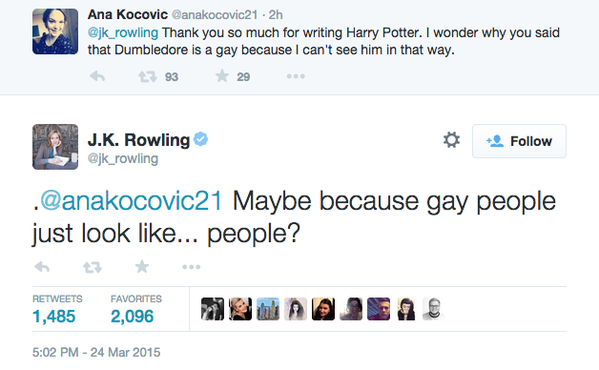 While diversity is a common word thrown around when talking about spotlighting more underserved communities, Rhimes thinks diversity is just not enough: “It suggests something…other. As if it is something…special. Or rare. As if there is something unusual about telling stories involving women and people of color and LGBTQ characters on TV.” And she’s not alone in thinking so. Famed author of the Harry Potter series, JK Rowling seems to think the same, that there’s nothing special about what we’ve been seeing on television lately – we’re just seeing people. After a fan asked why the Harry Potter character Dumbledoor was gay because she could not see him in that way, Rowling responded perfectly saying, “Maybe because gay people just look like people.”
While diversity is a common word thrown around when talking about spotlighting more underserved communities, Rhimes thinks diversity is just not enough: “It suggests something…other. As if it is something…special. Or rare. As if there is something unusual about telling stories involving women and people of color and LGBTQ characters on TV.” And she’s not alone in thinking so. Famed author of the Harry Potter series, JK Rowling seems to think the same, that there’s nothing special about what we’ve been seeing on television lately – we’re just seeing people. After a fan asked why the Harry Potter character Dumbledoor was gay because she could not see him in that way, Rowling responded perfectly saying, “Maybe because gay people just look like people.”
Thanks to these steps in the right direction, our stories are being heard, within the LGBT community and other marginalized groups. Think about it: when did we think we’d ever see a show like Jill Soloway’s Transparent not only be possible, but also make the huge, positive impact it has made. Ava Duvernay’s doing her part as well as a director, hoping to explore more stories of marginalized groups such as the transgender community, the African American community and more in the upcoming civil rights crime drama For Justice.
Surely we have more work to do. We can certainly do without nights like Sunday at the iHeartRadio Music Awards show, during which comedian and host Jamie Foxx took unnecessary jabs at Bruce Jenner, joking that Jenner would be doing a “his and her duet all by himself.” We can also do without legislation like Indiana’s newly enacted Religious Freedom Bill which gives businesses the right to discriminate based on religious convictions. But these things should not cast a shadow over how far we have come, how many minds we have changed and how we’re normalizing the entertainment industry as we know it. We must simply continue doing “the work,” so that others will come to realize that our work is worth caring about and we must continue looking forward for the good of all people, because as Ava Duvernay says, “If your dream only includes you, it’s too small.”
Written by: Megz Tillman
Photo by: Megz Tillman
For L Style G Style – storytellers of the Austin LGBT community. #GetToKnowUs


















